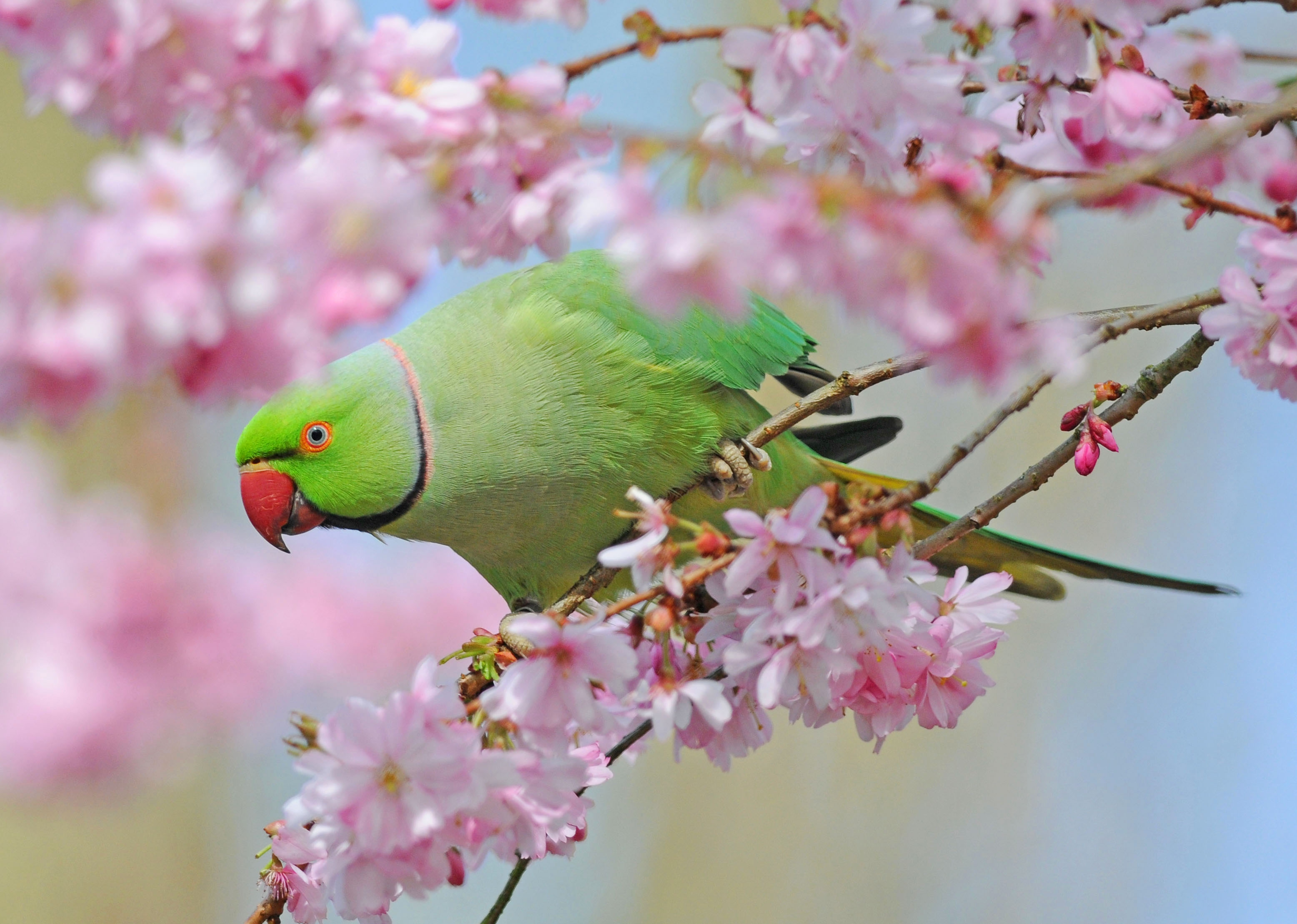A recent study, focussed on London, has demonstrated the significant impact of Ring-necked Parakeets on the foraging behaviour of native birds. The study, published in Behavioral Ecology, has found that presence of parakeets leads to increased vigilance and decreased feeding in our native birds. Furthermore, it was found that these behavioural changes are much more pronounced than in the presence of a dominant native species (namely Great Spotted Woodpecker).
The study concentrated on the effects in Great and Blue Tits — both common species in urban areas. Study of feeding stations suggested that the parakeets introduce a spatial shift in the tits' foraging behaviour which, if consistent, could feasibly cause reductions in population. If proven, this would represent the first case of such impact by non-native avian species in Britain, though a similar (and known) established British case concerns the Grey Squirrel.

Ring-necked Parakeets are a conspicuous species, found commonly right across Greater London. But is their vociferous nature having an impact on native species such as Blue Tit? (Photo: Bill Dykes)
The abstract can be read below:
"Resource competition is one potential behavioral mechanism by which invasive species can impact native species, but detecting this competition can be difficult due to the interactions that variable environmental conditions can have on species behavior. This is particularly the case in urban habitats where the disturbed environment can alter natural behavior from that in undisturbed habitats. The Rose-ringed Parakeet (Psittacula krameri), is an increasingly common invasive species, predominantly associated with large urban centers. Using an experimental approach, we tested the behavioral responses of native garden birds in response to the presence of a rose-ringed parakeet versus the presence of a similarly sized and dominant native bird, the Great Spotted Woodpecker (Dendrocopos major). Parakeet presence significantly reduced feeding rates and increased vigilance among native birds compared with our control treatments. Of visits made by native birds in the presence of a parakeet, feeding was more likely to occur in sites within the parakeet range compared with sites outside, suggesting some habituation of native birds has occurred following prior exposure to parakeets but overall foraging behavior is still disrupted. The results of our study suggest that nonnative species can have complex and subtle impacts on native fauna and show that a nonnative competitor can impact native species simply through their presence near resources."
The full paper is open access, and can be read and downloaded from the Behavioral Ecology website.
.Peck HL, Pringle HE, Marshall HH, Owens IPF & AM Lord. 2014. Experimental evidence of impacts of an invasive parakeet on foraging behavior of native birds. Behavioral Ecology DOI: 10.1093/beheco/aru025
Link to external website here.


